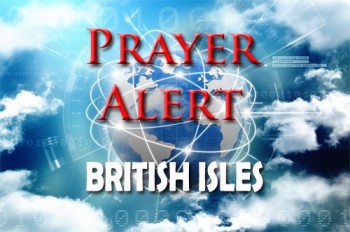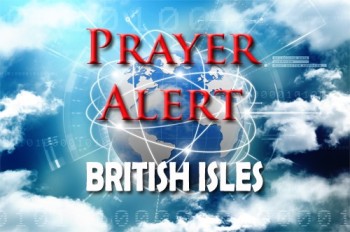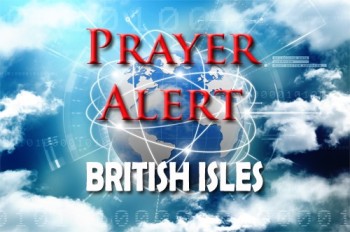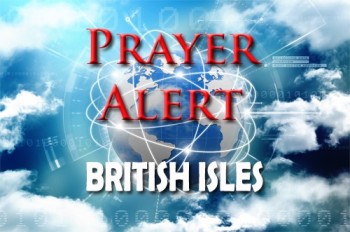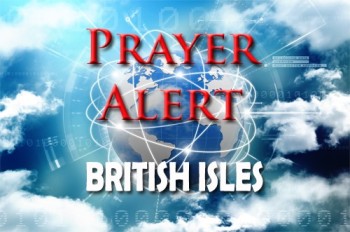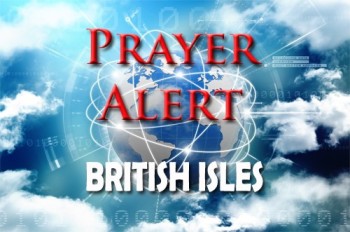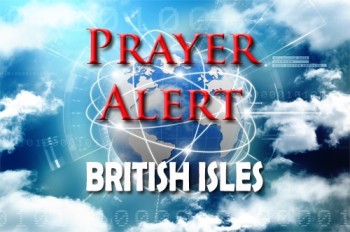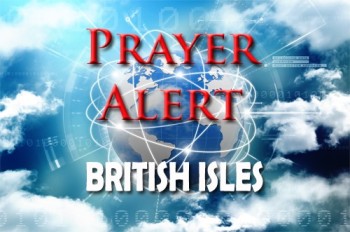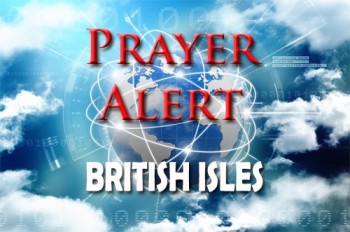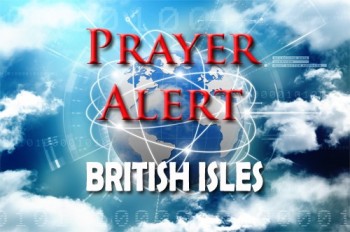Displaying items by tag: england
Starmer plans to build new towns inspired by King’s designs
Keir Starmer has announced plans to build a dozen new towns across England, inspired by traditional architectural styles championed by King Charles. With 100 areas applying for developments of over 10,000 homes, he aims to fast-track construction before the end of this parliament, focusing on quality design and community-led development. The Government is targeting 1.5 million new homes, addressing planning delays and environmental regulations which have stalled 700,000 housing projects. Starmer emphasised avoiding a reliance on foreign labour, insisting that developers train British workers to meet construction demands. Visiting Nansledan in Cornwall, a King Charles-backed development, Starmer praised its blended housing approach, where affordable homes are indistinguishable from others. The initiative seeks to expand homeownership opportunities, particularly for young people who have been priced out of the market.
NHS England: early cancer diagnosis getting better
The proportion of cancer patients diagnosed at early stages has reached a record high in England, with 58.7% of cases identified at stages one and two between September 2023 and August 2024. This marks a 2.7 percentage point rise since before the pandemic, significantly improving survival rates. Public awareness campaigns and innovative screening approaches, such as mobile lung and liver cancer screenings, have been credited for the progress. However, challenges remain. England is still well short of its target to diagnose 75% of cancers at early stages by 2028. Nearly one in three patients faces delays of over 62 days from urgent referrals to starting treatment. NHS England’s national cancer director, Dame Cally Palmer, acknowledged the progress but pointed out the need for further improvement, as the UK lags well behind other European nations. Cancer Research UK also called for a fully-funded national cancer plan to enhance resources and transform care. Early detection saved patients like Paul Nelson, 72, whose cancer was found through routine checks.
Parents in England urged to sign up for free childcare in 2024
In England, working parents are being encouraged to apply for 15 hours of free childcare per week for their toddlers starting in the new year. This initiative is part of a broader reform by the Department for Education, which also includes a childminder start-up grant. Additionally, a £400 million funding increase for early years providers is planned for 2024-25. Chancellor Jeremy Hunt's budget plans, announced in March, will extend this offer to families of children as young as nine months, providing thirty hours of free childcare every week. Starting in April 2024, this benefit will be available for parents of two-year-olds and will expand to include children over nine months from September next year. However, opposition critics, including the shadow education secretary and Liberal Democrat spokesperson, argue that the policy is not feasible due to a shortage of childcare providers and insufficient government funding. They warn of a potential crisis in childcare services.
Junior doctors - five days of strikes
Junior doctors began a five-day strike on 13 July. It is the longest walkout in the NHS’s history. The strikes are being held even though the government has accepted recommendations from pay review bodies for teachers, civil servants and NHS workers, for pay rises of between 5% and 7%. BMA leaders are urging the Government to return to the negotiating table to resolve the situation that has led to thousands of cancelled operations and consultations. BMA leaders Dr Robert Laurenson and Dr Vivek Trivedi said, ‘We can call this strike off today if the Government will simply follow the example of the government in Scotland and drop their nonsensical precondition of not talking whilst strikes are announced and produce an offer which is credible to the doctors they are speaking with. Their refusal to talk with junior doctors who have strikes planned is out of keeping with all norms of industrial action.’
England and Wales: extreme weather warning
The Met Office has issued an extreme heat weather warning (Level 3 Alert) for most of England and parts of Wales, with temperatures building, especially from 16 to 19 July when the maximum could reach 38C. There could be a danger to life or potential serious illness; there could be widespread impact on infrastructure, with road closures and cancellations or delays to rail and air travel. Health minister Maria Caulfield said that a heatwave plan is being actioned; also a NHS hot weather plan is in place. Pray for health and social care workers to pay particular attention to the elderly and vulnerable. Pray for councils and boroughs to conduct welfare checks on vulnerable street people and rough sleepers. Pray for parents to watch young children for signs of heat exhaustion. In England, there were 2,500 excess deaths in the summer of 2020 as a result of hot weather.
Sats results: Standards slip in Year 6 tests
Sats results show year 6 standards in reading, writing and maths have slipped in England since the pandemic. 59% of pupils met the expected level. The government says the Sats results were as expected due to the pandemic and there is ‘more work to do’ to help pupils catch up. By 2030 it wants 90% of children leaving primary school to have the expected standards in reading, writing and maths. Unions said further investment in schools and teaching staff was needed to achieve that target. The government said it values the work teachers up and down the country are putting into education recovery. £5bn has been allocated to help pupils catch up and children struggling in English and maths will ‘receive the right evidence-based targeted support to get them back on track’. The education unions and former advisor Sir Kevan Collins said the recovery fund falls short of what was required - around £15bn.
Nadhim Zahawi rejects smacking children ban
Education secretary Nadhim Zahawi said he does not believe the state should be ‘nannying’ parents about the way they bring up their children. He has rejected the call to ban smacking children in England, saying, ‘Parents are entitled to discipline their children. My very strong view is we must trust parents on this. They should be entitled to discipline their children. There is a very big difference between a “light smack on the arm” and child abuse.’ Dame Rachel De Souza, the children's commissioner, has signalled her support for changing the law to give children the same protection from assault as adults. Wales has made illegal any type of corporal punishment, including smacking, hitting, slapping or shaking illegal. In England and Northern Ireland, smacking a child is unlawful, but is allowed as long as it constitutes ‘reasonable punishment’.
England: plan B - new Covid rules
There are fears that the new Covid variant, Omicron, ‘could be’ more infectious and less responsive to vaccines. Therefore, from 10 December, face coverings are mandatory for most indoor venues including places of worship, theatres and cinemas - as well as on public transport and in shops and hairdressers. Masks won't be needed in pubs, restaurants, or gyms where it's ‘not practical to wear them’. From 13 December, people should work from home ‘if possible’. From 15 December (subject to parliamentary approval), people will need to show an NHS Covid vaccination status or a recent negative lateral flow test to enter nightclubs, indoor unseated venues with over 500 people, unseated outdoor venues with over 4,000 people and any venue with over 10,000 people. They must also do lateral flow tests (LFT) before entering high-risk settings like crowded places involving people you wouldn't normally come into contact with, or when visiting a vulnerable person.
Updated funding reforms needed for social care
Social care organisations want Boris Johnson to fix the broken care system.They want long overdue changes to funding social care and ‘immediate’ cash injections to cover costs incurred during the pandemic. Councils need money for new technology and fairer deals for care staff. In 2019 Boris Johnson vowed to fix the funding crisis ‘with a clear plan we have prepared’, but discussions around changing costs are still ongoing. Social care is not free to vulnerable people with assets over £23,500. Below that they receive council help. Consequently, thousands of people annually must sell their homes to pay for their care. Charities warned that ‘every week of dithering means an extra 13,000 pensioners being denied vital help’. It is believed the PM supports a £50,000 lifetime cap on care costs to shield pensioners from catastrophic bills. However Rishi Sunak is concerned over finding £10billion a year to pay for this.
Cross-border blessing - 28 April
For many years groups have gathered at locations along the Scotland/England border in a spirit of unity and reconciliation, confessing and repenting of the sins of one nation towards the other. There is a sense that much has been achieved, but there is still work to be done. In that spirit a small group from both sides of the border met to pray and discuss over recent weeks; the result is ‘Cross Border Blessing’ on 28 April. Sixteen individuals/couples will pray a blessing from one nation to the other, in 15-minute sections, criss-crossing the border from east to west. You can join them from where you are by using the blessing prayers In the evening there will be an online gathering of people from both nations to worship and pray under the banner of unity, celebrating what God is doing to build His church.
